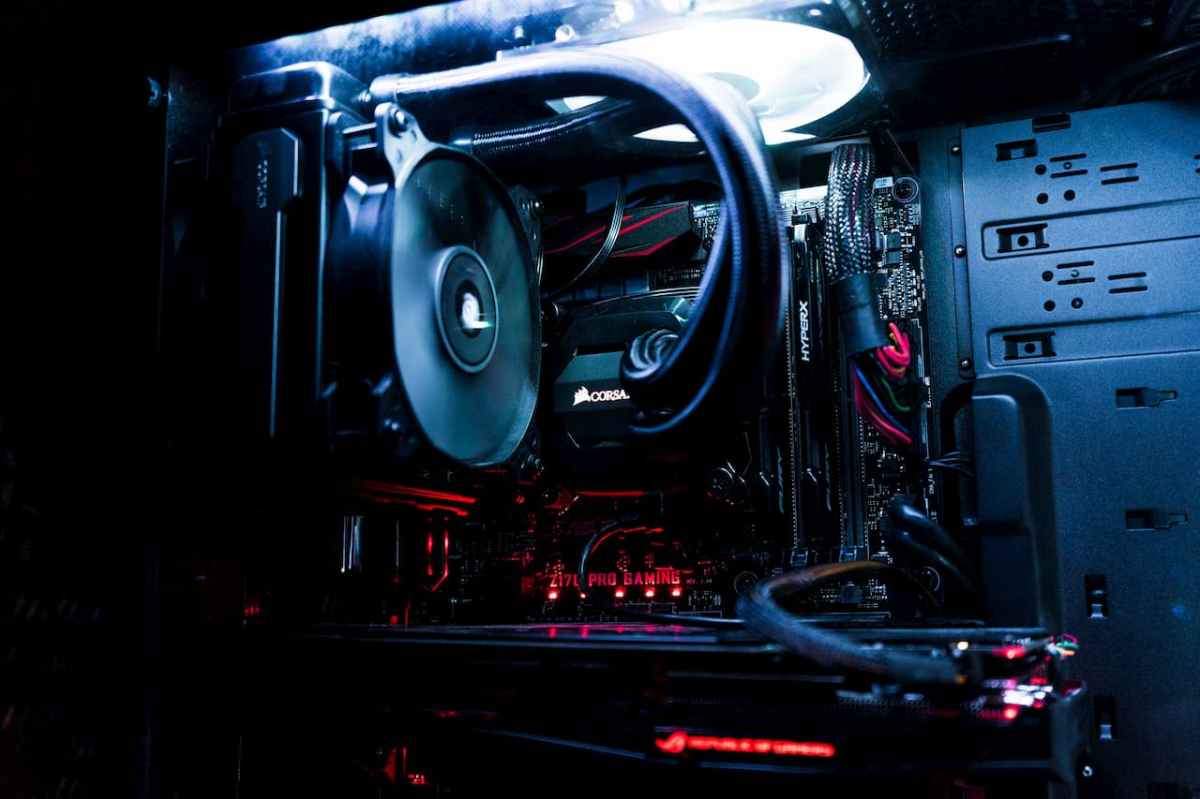Disclaimer: Overclocking is an advanced procedure that can ruin your hardware. Overclock at your own risk.
Overclocking a CPU allows you to get a little more power out of your hardware, potentially allowing your PC to run games a little better. While it is not without risk, it can be a great method to get a little bit of extra life out of older CPUs or to get the most out of any new CPU that you purchase.
When should you overclock your CPU?
There is no correct answer to this question. Your CPU does not need to be overclocked, but it is something that people will do regularly to get better performance. In our experience, an overclock can be a great way to extend the life of a build if you need some more time to save up for a new PC. It is also a great way to start out with a new PC and get the best possible performance for your money. You can, of course, overclock your CPU at any time you like.
Can you overclock all CPUs?
CPUs can only be overclocked if they have an unlocked multiplier. Some CPUs will be locked, and therefore cannot be overclocked. To find out if your CPU can be overclocked, you will want to check the specs of that specific CPU on the manufacturer’s website. For the most part, Intel chips with a K can be overclocked, and AMD FX and Ryzen chips can be overclocked. Be sure to check the manufacturer sites if you have any doubts about your own make and model of CPU.
How does overclocking work?
Many CPUs have a little more headroom than the clock that manufacturers will place on them. This is because Intel and AMD ship CPUs at a speed that guarantees stability. Due to the nature of the manufacturing process, there can be different headroom for more speeds across different batches, but it is important for the companies to sell them at set clock speeds and prices so that consumers can make informed choices when they buy a CPU.
There are two methods to overclocking a CPU, either using the BIOS/UFEI or by using software that both have their own advantages and risks. It is at this point that we start getting into the potential dangers of overclocking.
Is overclocking safe?
Yes and no. Overclocking is safe when done carefully, but depending on the overclocking method, the skill of the overclocker, the PC’s cooling solutions, and other factors, there can be some risk. The main risk is to the stability of the PC. If you overclock it and it starts to crash a lot, then that is a bad overclock. At the farthest end of the scale, if you do something like manipulate the voltage from the motherboard to the CPU and raise it too much, you may end up needing to get a new CPU.
Another factor is that some CPUs will remain stable with a higher overclock than an identical CPU, due to the aforementioned issues with chip manufacturing. Once again, this is why manufacturers sell CPUs at set clock speeds that they know the entire batch can perform under with perfect stability. This means you and a friend can have the same chip, purchased on the same day, but their overclock might not be stable on your CPU, or vice versa.
The final thing to consider is that overclocking will likely void the warranty on your CPU, so anything that goes wrong will hit you directly in the pocket.
A word about cooling your CPU
If you do want to overclock your CPU, then a new cooling solution may be required. If you want to get more power from your CPU, then you need to expect more heat. To avoid potential problems such as straying to close to your CPU’s maximum temperate, know as the TJ Max, you might need to upgrade your cooling. Products such as the Noctua NH_D15 or the Corsair H150i PRO may be required to keep temperatures down for large overclocks.
You should also run a program like Core Temp, as this will allow you to monitor your CPU temperature as you use your computer, which is very important after applying a new overclock.
How to software overclock a CPU
Intel
For Intel CPUs, you can download the Intel Extreme Tuning Utility software. It will allow you to alter the power, voltage, core, and memory settings that you will need to change to get a stable overclock. The software is easy to use, adds a layer of safety to overclocking, and will also allow you to stress test the stability of an overclock.
AMD
AMD users used to have two software options, depending on their CPU. Ryzen owners can use the Ryzen Master software. People who owned older AMD CPUs used to be able to use the Overdrive program, but that has now been discontinued by AMD, and their advice is to upgrade to a Ryzen CPU, unsurprisingly.
If this is your first time overclocking a CPU, then a software solution would be recommended due to the safety factor, as it limits the potential damage you might do to your hardware.
How to overclock using the BIOS/UEFI
It is also possible to overclock your CPU through the BIOS. This is the go-to method for experienced overclockers but lacks the built-in safety features of the software provided by the CPU manufacturers. It can give you much more control over the overclock, however.
Exactly how to do this is normally dependent on the motherboard, so for a detailed guide, you might want to search for a specific tutorial that covers the make and model of the motherboard, in combination with the CPU you wish to overclock.
Many modern boards will have a simple option to overclock, allowing you to easily apply a low level overclock, once again, this will be board dependant. It is advisable to spend more time than you feel you need reading about the motherboard and the CPU, as there is no such thing as being too prepared.
To access the BIOS, you need to hold a key during startup. This is normally Delete or F2, and will be shown on the monitor during the startup process. How exactly everything is laid out in the BIOS will depend on the manufacturer of the board, but you will be looking for an option to change the multiplier for the CPU, if there is no obvious overclocking option in the BIOS. CPUs have a base speed, and a multiplier, and by altering the multiplier you can increase the maximum clock speed of the CPU. You want to increase the multiplier by the smallest possible amount, test the overclock for stability, then increase it again.
The real risk of overclock through the BIOS is when entering your core voltage. If you want more power from the CPU, then you need to send it more voltage. Modern motherboards should show you the recommended core voltage based on the multiplier, and this is the value you need to enter. If you are unsure of this value, then take note of the core voltage for your standard manufacturer’s clock, and increase it very slightly from there. You can also search the internet to find settings that other people used for that type of CPU.
Messing around with core voltage is the real danger of overclocking, so we want to reiterate again how you should do lots of research, and be extremely cautious at this stage.
Run something CPU-intensive, and if the PC doesn’t crash, you are in the clear. You want to find a point where the PC crashes, then dial it back a little, test again, and that is your new stable overclock.
Once again, you want to pay close attention to the temperature of the CPU, read up everything you can on the motherboard and the CPU, and trying to find a dedicated video or written tutorials for overclocking that use the same hardware combination you are trying to overclock with for the best results.










Published: Feb 7, 2020 12:57 pm